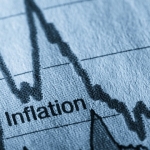The stock markets are off to a rocky start in 2016 and the question that seems to be asked most is “Is it different this time?” Market volatility is not an unusual event for stocks and it is the primary reason long term investors have historically been compensated more in the form of higher investment returns than from most any other asset type. Most of the time, when market volatility arises, it is for a relatively short period and the negative news dissipates rather quickly. For example, over the last several years, short term drops in the market have been a regular occurrence but in most cases the market returns for the year were positive. The following chart illustrates the annual returns for the S&P 500 Index, the most significant drop that occurred at some point throughout the year, and the primary news events which drove the decline:
Although many of these events now seem irrelevant they were headline concerns at the time. The fact that during these periods the markets have grown significantly illustrates the importance of a patient long term investment approach.
The start of 2016 has certainly been difficult to watch with most equity indices having declined approximately 7-12% year-to-date. Fortunately, we do not see any of the fundamental economic conditions that typically accompany a bear market where investment returns would drop more precipitously and over a protracted period of time. As we have described in prior communications, these factors are equity overvaluations, restrictive Federal Reserve policy, and an economic recession. Instead, the two current themes moving the markets are more predicated on fear and are therefore less likely to persist. These two themes are a decline in oil prices and a slowdown in China’s economic growth.
Regarding oil prices, conventional wisdom is that when oil prices surge, “oil shocks” occur, such as those experienced in the 1970s, stifling economic growth. Today, the exact opposite is occurring, with the price of oil declining from over $100 a barrel to approximately $30 today. Although profits in energy companies will be challenged by cheap oil, the average consumer now has more discretionary income and should provide an economic boost over time. In addition, many of the other sectors of the economy should experience increased profits due to decreased production and transportation costs.
The story with China is not new and has been discussed in the media and in economic circles for the last several years. As a country, China has been in a relatively slow trend of deceleration as they continue to transition from an export economy to one that is a consumer driven economy and anchored by a growing middle class. Furthermore, while the economy’s growth has declined from double digit to a forecasted 6% growth for 2016, their growth rate is substantially higher compared to other developed markets where growth has been around 1-2% for the last several years.
The expectation is that it will not be different this time and fundamentals will eventually overcome short-term fears. Importantly as well, a diversified portfolio is more forgiving than having your investments in a single index asset class such as the S&P 500 Index, allowing it to perform with less volatility and thereby experience better growth long term.
To learn more about David Wilder, view his Paladin Registry profile.
Other posts from David Wilder
Is Anyone Managing Your 401(k)?
Many investors have a 401(k) or 403(b) retirement plan that includes limited investment options and, as a result,...
Are New Stock Market Highs a Concern?
With many stock indexes such as the Dow Jones Industrial Average and the S&P 500 hitting new market...
Investment Returns Revisited – Part II
Is 6% a good return on your investment? In Part I of the our blog, we discussed the...




